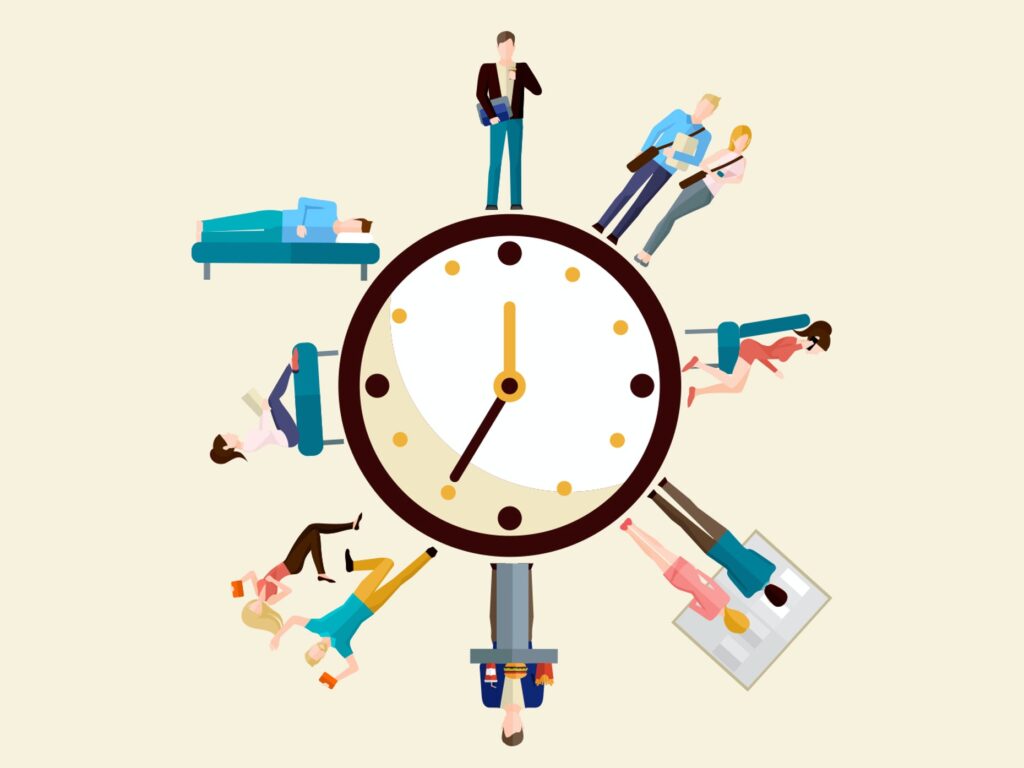Mental Health
The 16 Best Ways to Stop Internet Addiction

Last Updated on May 14, 2024 by Joshua Isibor
Internet addiction can be defined as compulsory use of the Internet, despite negative consequences on the person. This is a recognized behavioral disorder that can include addictions to social media, online gambling, Internet video games, cybersex, and more.
If you have an online relationship with someone and find yourself obsessing over Tinder matches, webchats, and other forms of seeking online relationships, you might have an Internet addiction. Or, if you find yourself constantly searching the web for information on anything and everything, this is also a sign of Internet addiction.
Because our world is so digitized, it’s easy to form Internet addictions without realizing it. And with the impact of COVID-19, many of us took our already digitized worlds to the next level, having virtual meetings and parties, relying on phone apps to deliver our food and groceries, and video chatting with loved ones.
Signs of Internet Addiction
If you’re not sure whether you have an addiction to the Internet, there are a few warning signs you can be on the lookout for.
Here are some of the signs of Internet addiction:
- Having obsessive thoughts over the Internet (such as constantly thinking about when you can use it again, getting connected to WiFi everywhere you go, and having most of your thoughts revolving around the behavior)
- Feeling anxious when you’re not on the Internet
- Skipping out on in-person activities to be on the Internet
- Not being emotionally present at social gatherings because you’re using the Internet or thinking about it
- Using the Internet as your primary way to cope with stress, sadness, or another negative emotion
- Spending most of your time online
- Lying about how much you use the Internet
- Minimizing the impact of your Internet use on yourself and others
- Missing deadlines, homework, or major events because of your Internet use
- Feeling guilty or shameful about your Internet use
If you can relate to any of these signs and are struggling to overcome an addiction to the Internet, hopefully, these tips can help you to stop your Internet addiction.
16 of the Best Ways to Quit Your Internet Addiction
1. Change Your Daily Routines


Behavioral addictions usually require a total refresh in the routine department. If you’re addicted to the Internet, your day is probably centered on that activity. Start by changing your daily habits to replace Internet-focused behaviors with other things. Work on creating a schedule for yourself and stick to it.
2. Find a New Hobby
The biggest issue with quitting an Internet addiction is replacing those unhealthy habits with life-giving ones. If you have nothing to replace your addiction, it’s likely you’ll go right back to it in times of stress, boredom, or emotional problems. Find something to fill your time that makes you feel happy and gives you the ability to choose to spend your time somewhere other than the Internet.
3. Meet with Others Face-to-Face
Internet addictions encourage us to dissociate from the real world and live in a virtual environment. To get out of this cycle, try spending time with people in person. Set up hangouts with friends, family dinners, dates with your significant other, or some other way to talk to someone you enjoy spending time with.
4. Set Time Limits on Your Phone
If you’re addicted to anything on your phone (online games, social media, chat rooms, your email, etc.) you can start by implementing restrictions in your settings.
Follow these steps for iPhone users: 1. Settings 2. Screen Time 3. App Limits.
Follow these steps for android users: 1. Settings 2. Digital Wellbeing & parental controls (tap the chart) 4. Set timer.
5. Set Restrictions on Your Computer
You should also set restrictions on your computer to limit your time spent on the Internet. Set restrictions to block websites you normally frequent, implement time limits, or even add parental controls. These can all help to deter you from using the Internet and falling back into old patterns.
6. Get Into Nature
There’s an entire world to experience that’s full of natural endorphin-boosters. Take your eyes off your screen and spend time in nature for a set amount of time. This might start out with a 10-minute walk each day if you’re not used to this type of activity. Work yourself up to spending more and more time outside each day and away from the Internet as a way to refresh your spirit and spend time in the natural elements.
7. Practice Mindfulness


One of the reasons many of us are addicted to the Internet is because it’s where we go in the still moments of our day. As soon as there’s nothing to do, we run to social media for a mindless scroll or turn Netflix on for some easy entertainment. Instead, use these quiet moments to practice mindfulness.
To do this, close your eyes and focus on the present moment. Notice how your body feels, whether you’re tense or relaxed, and pay attention to your emotions, feelings, and surroundings.
8. Address Other Mental Health Issues
Internet addictions often occur alongside other issues, such as social anxiety, depression, bipolar disorder, or substance abuse. If you suspect you might have another issue in regards to your mental health, take the time to sort through that by speaking with a friend, mentor, or professional counselor.
9. Try Going to Therapy
There are therapeutic practices specifically designed to address addiction to the Internet. Some of the most commonly used therapies for Internet addiction include cognitive behavioral therapy, talk therapy, family therapy, and group therapy. These are great outlets to discuss your struggles with the Internet, find solutions to specific problems, and cultivate important life skills to stop Internet addiction.
10. Find a Self-Help Group
One of the best ways to get over an Internet addiction is to communicate with other people who understand what you’re going through. Find a self-help group in person and start making connections with other people who can help you to get better.
11. Start Journaling
You can use a journal in a few different ways. For one, this can be a great outlet to express your thoughts and emotions, factors that might be contributing to the addiction. By channeling these positive and negative feelings into a healthy outlet, you’ll be able to better control your Internet use. You can also keep a journal that logs when you use the Internet, why you went online, what you felt like afterward, and what things you want to change.
ALSO, READ 22 ways on how to build self-belief
12. Go to a Rehab Program
When you think of rehab, your mind probably goes straight to drugs and alcohol. But there are a lot of programs that treat behavioral addictions like an addiction to the Internet. If you feel like your Internet addiction is overwhelming all else in your life and you need help to get out of it, you might want to think about going to a rehab center. You’ll be immersed in an environment that’s totally Internet-free, have a staff of counselors and therapists who can help you to work through the issue, and create a plan for post-recovery goals and ways to avoid triggers.
13. Practice Self-Control
Addictions form out of a struggle with self-control. Whether it be substances or Internet addiction, your brain is responding to your daily habits and activities, creating new neural pathways and generating chemicals based on your lived experience. To overcome Internet addiction, you should practice self-control (not only with the Internet but with every area of your life) to build new patterns that your brain can respond to. Try waking up earlier, exercising, prioritizing important tasks, and removing temptations that usually trigger an unhealthy response.
14. Set Alarms to Pause


SET ALARM
One way to curb your Internet use is to set alarms on your phone as times to pause, sit, and think (or grab a coffee, go for a walk, or call your mom). Pick several times in the day for an alarm to go off on your phone and commit to stopping Internet use altogether and choose an Internet-free activity.
15. Turn Off Your Notifications
With the constant dings, pings, and rings emanating from our phones, tablets, computers, and other devices, it’s no wonder many of us are addicted to the Internet. Turn off all notifications, including those for text messages, social media, email, and anything else that might serve as a distraction from your progress.
16, Do an Internet Cleanse
Devote a set period of time in which you don’t use the Internet in any capacity. If you have to go online for work or school, choose a weekend when you can spend two or three days pursuing activities offline. You need to give your mind a chance to detach from learned patterns and detox yourself from the Internet. Take a few days and use the tips in this article or come up with your own activities to step away from the Internet. If you need to ease into it a bit more, commit to at least one evening where you don’t use the Internet.
ALSO, READ How to Cope With Environmental Stress
Originally posted 2021-09-30 22:03:58.


-



 Text Messages5 months ago
Text Messages5 months agoBEST LOVE CONFESSION MESSAGES FOR HER OR HIM
-



 Sex Education3 months ago
Sex Education3 months ago10 Simple Hack to Make a Girl Send Her Nudes
-



 Text Messages5 months ago
Text Messages5 months agoHeart Touching RIP Uncle Quotes
-



 Text Messages5 months ago
Text Messages5 months agoBest Good Luck Wishes Before and After Surgery, for Family and Friends
-



 Text Messages6 months ago
Text Messages6 months agoFreaky and Dirty Paragraphs For Him Copy And Paste Yahoo
-



 Uncategorized3 months ago
Uncategorized3 months agoHOW TO FALL IN LOVE WITH YOURSELF
-



 Uncategorized4 months ago
Uncategorized4 months agoHOW TO KISS A BOY FOR THE FIRST TIME
-



 Health5 months ago
Health5 months ago5 Unknown Ways To Maintain Skin Health